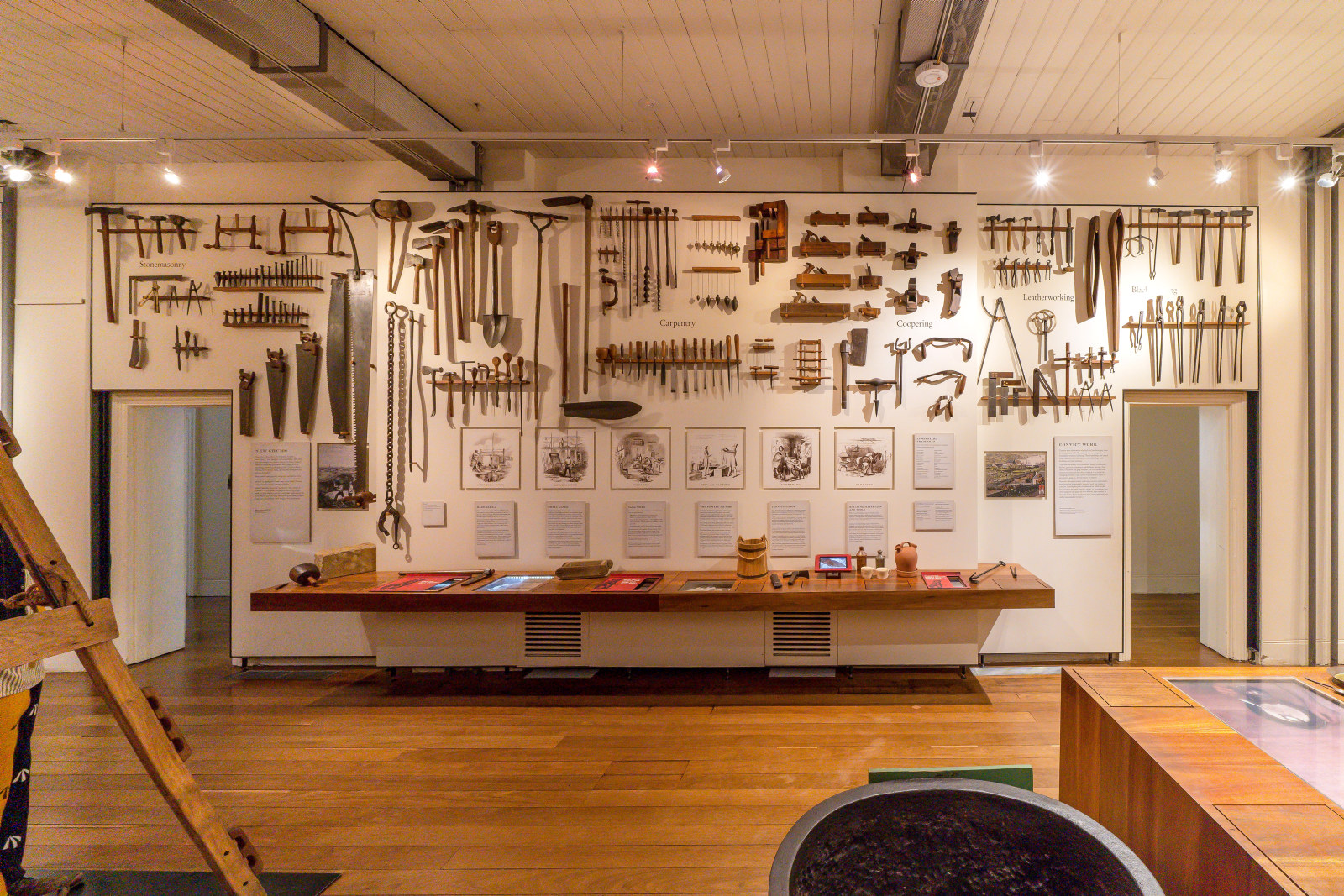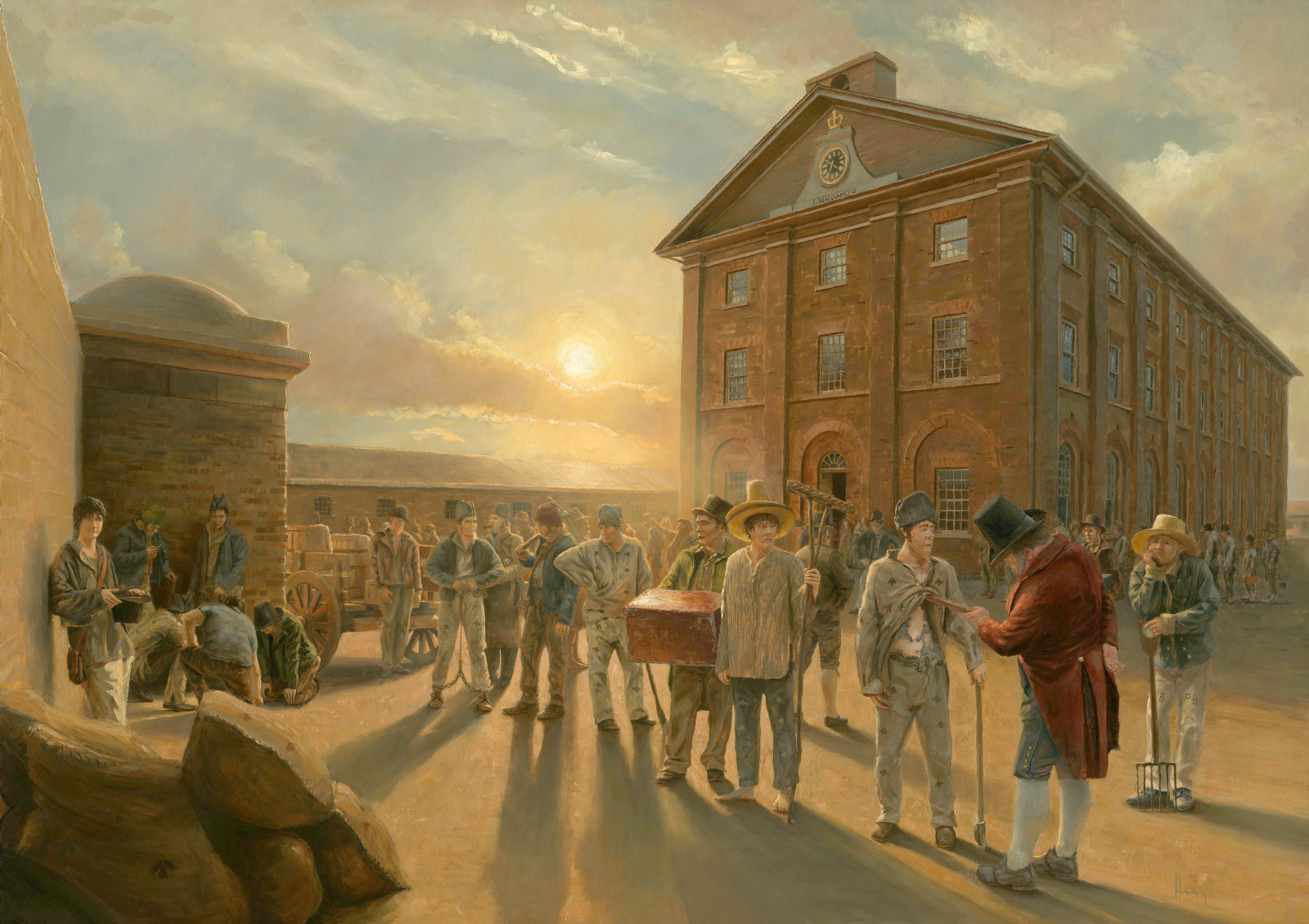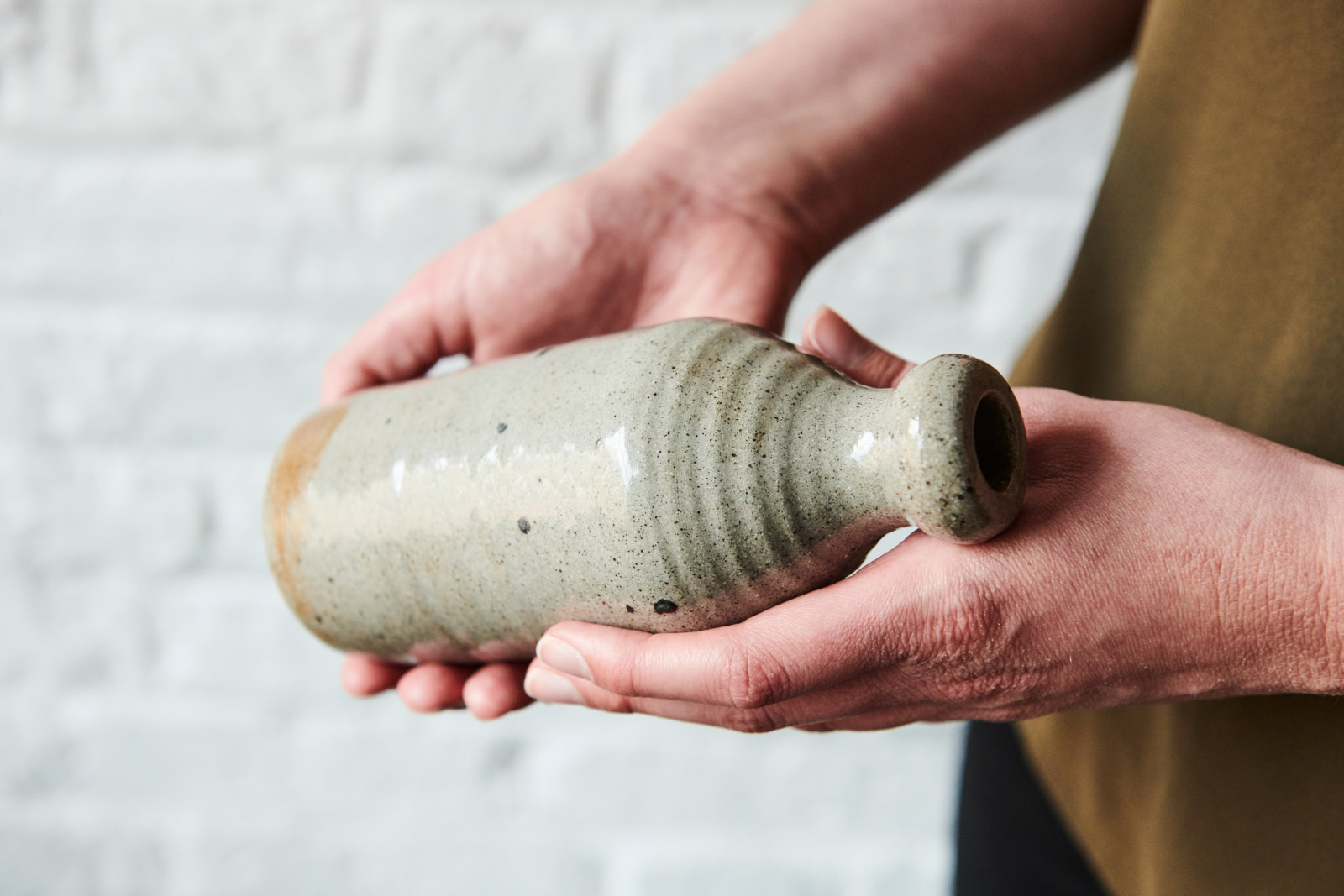Leg irons, top
Early to mid nineteenth century
Known as darbies or slangs in the convict ‘flash’ slang language, leg irons were used widely as a way of punishing convicts who had committed crimes and misdemeanors after arriving in the colony. Top leg irons, like those pictured here, were designed to provide additional punishment. The pear shaped basils (rings) allowed the top irons to fit over the rivets of a set of standard leg irons, so that the convict would be 'double ironed'. The basils were fitted around the convict’s ankles and then hot rivets were put in place by a blacksmith, so the irons could not be removed.
Leg irons chafed the ankles, made loud clinking noises with every movement, and made working difficult and tiring. Running at any speed in irons was almost impossible - unless of course the convict could find a way to remove them.
I wore leg-irons like all the others, which weighed about seven pounds, and at first they made me feel rather curious… our convict life had begun... my leg-irons the tell-tale to recall me if ever I went back again in thought
Convict Jack Bushman remembering 1818, in 'Passages from the Life of a Lifer', Chapter II, Moreton Bay Courier, vol XIII, no 741, 9 April 1859.
Published on
Related

Convict Sydney
Objects
These convict-era objects and archaeological artefacts found at Hyde Park Barracks and The Mint (Rum Hospital) are among the rarest and most personal artefacts to have survived from Australia’s early convict period

Convict Sydney
Convict Sydney
From a struggling convict encampment to a thriving Pacific seaport, a city takes shape.

Learning resources
Explore our range of online resources designed by teachers to support student learning in the classroom or at home